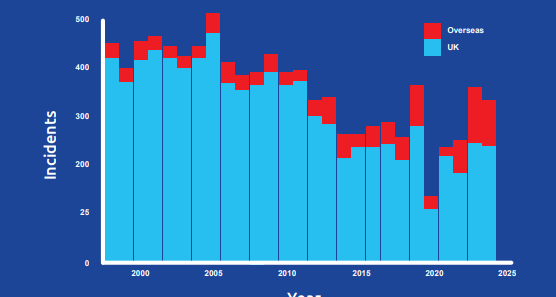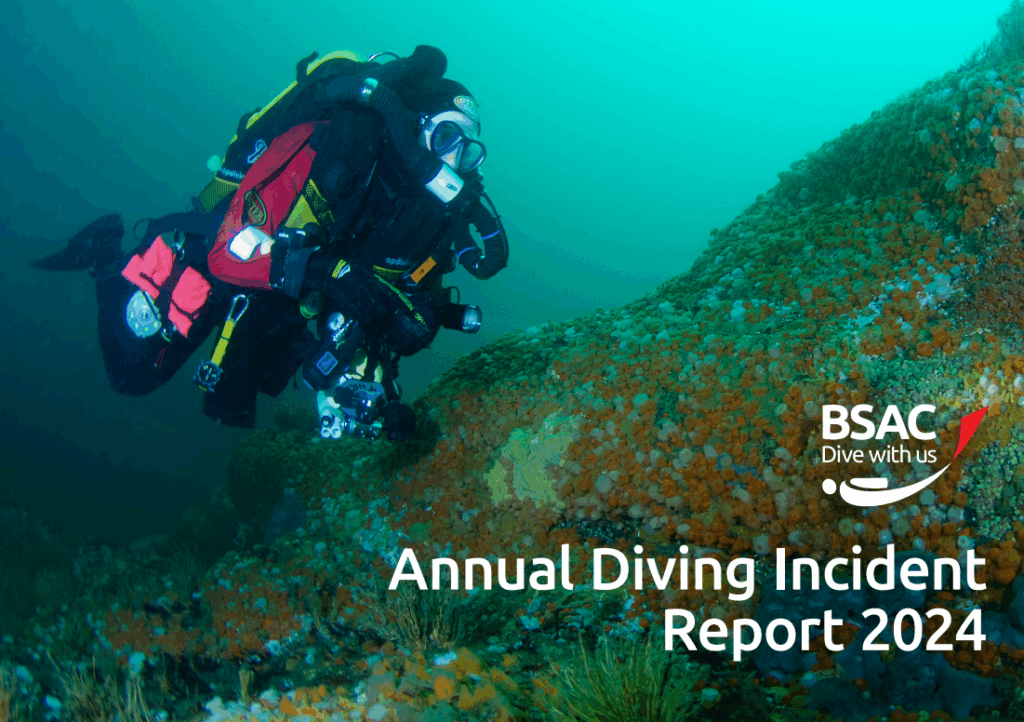


The British Sub Aqua Club (BSAC) collects data about diving incidents from many sources, and analyses the UK data to capture trends. There are now some 9,000 incidents in the database. Data collection for the reports began in the mid-1990s.
In a presentation on the analysis of 2024 data that took place on 11 November 2025, BSAC Incidents Advisor Jim Watson made the following points.
Fifteen-year trends seen in the data include a decrease in boat or surface-related incidents, and kit-related incidents. Decompression-illness-related (DCI) and ascent-related incidents both show a continuous steady decline.
Further analysis of the factors contributing to DCI-related incidents shows that numbers of incidents involving diving deeper than 30 metres, rapid ascents, or missed stops all continue to fall. But none have reached zero incidents. Repeat diving is increasing as a factor in DCI-related incidents. We should be aware, however, that more than one factor may be implicated in DCI.
Analysis of ascent factors involved in reported incidents shows that while these rose until 2020, they have been decreasing or stable since then. Panic as a factor in an ascent related incident seems to remain steady: but is this chicken or egg? Drysuit use was flagged up as a growing concern. Inversion happens and feet come out of fins or boots. A take-away message here was to focus on drysuit training and correct suit fitting.
Sadly, in 2024 there were 12 fatalities. Six occured in July, possibly reflecting increased diving activity, more incidents and more fatalities. The two fatalities in November and one in December were unusual.
Two fatalities were confirmed to be a result of medical conditions. Unlike in 2023, there is no information to suggest that there were any fatal cases of immersion pulmonary oedema (IPO). Eight fatalities were ‘missing’ divers. Four were separation incidents and 2 were solo divers. One diver, diving alone was said by the coroner recently to have been using ‘unsiutable’ equipment.
Of the IPO incidents reported, six were confirmed by medics, and one remains probable. All survived, which shows an improved awareness among divers and the rescue services.
Reading the full report reveals much more interesting detail.
The HQ team was keen to reinforce the benefits of buddy diving, declaring that BSAC was not going to introduce a solo-diving course.
Jim’s final conclusion: experience and qualifications alone do not neccessarily protect you from an incident. There is no room for complacency in our sport.
A diver experiencing an IPO will be finding it difficult to breathe. They are likely to think that their gas supply is compromised: you may see them feel that they are not getting enough gas from their primary first stage, reject an alternate source, question the reading on their pressure gauge. You should
The 2024 BSAC Diving Incidents Report is available to read.
